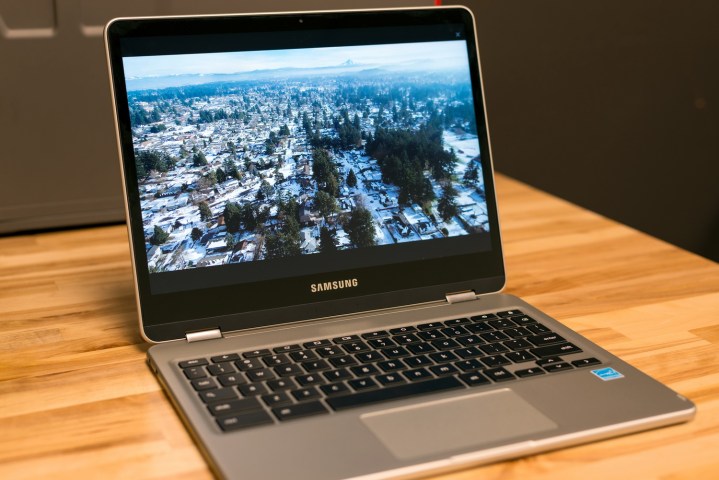
Detachables offer an appealing middle-ground between tablets and notebook computer. A detachable is basically a tablet that comes with a connected keyboard, so you can use it as a traditional notebook. And if you want to use it as a standard touchscreen tablet, then simply remove the display from the keyboard.
Detachables have become fairly popular with the rise of the Microsoft Surface, but most of them are pretty pricey. The Surface Book 2 is a great piece of hardware, but it starts at more than $1,000. This brings us to Chrome Unboxed’s report that Samsung is working on a detachable Chromebook.
Generally, Chromebooks, which uses Google’s custom Chrome OS, are more affordable than Windows or Mac laptops. There are some outliers such as the Pixelbook, but Chromebooks generally cost anywhere between $200-$500. It would be nice if Samsung’s detachable Chromebook will stay within that price range, as it’s uncertain if the market has room for too many thousand-dollar Chromebooks.
As for the device itself, we don’t know too much about it, but we do have a few pieces of the puzzle. For starters, it has been reported that this device will be powered by a Kaby Lake processor, and it has been codenamed “Nautilus.” Samsung has not announced this device yet, but one of the names attached to the project, Jongpil Jung, is one that has been exclusive to Samsung devices.
One of the big questions surrounding this Chromebook is when it will launch. There are two likely venues for an announcement. The first is at CES in January of next year, but that may be cutting things a bit close, since development reportedly only began this September. An option that would give the development team a bit more time would be at Samsung’s annual spring event, where it will also likely unveil its next flagship smartphone.


